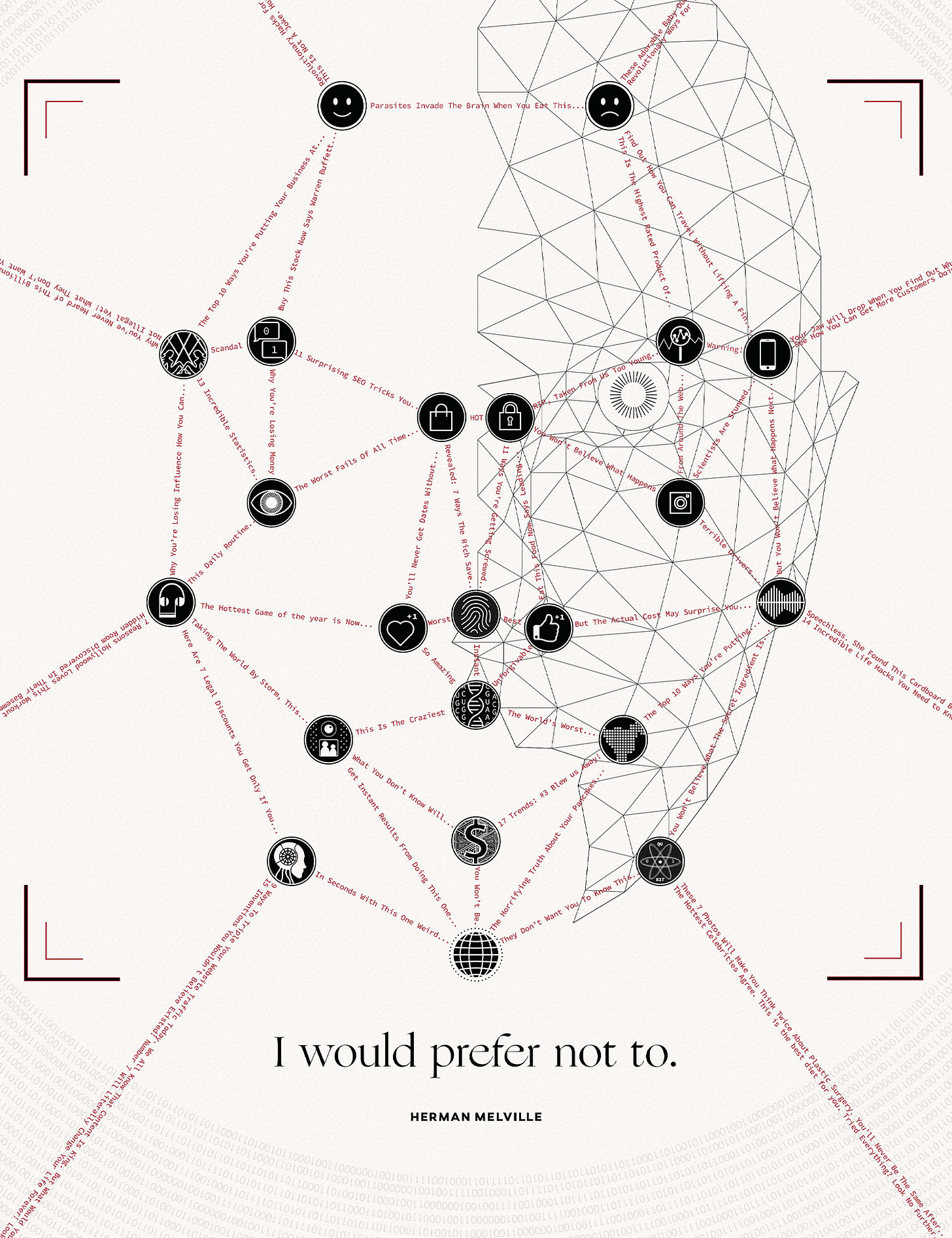
Melville On Opting Out Of The Digital Age
“I would prefer not to.” - Herman Melville
Lots of folks requested this line from Bartleby the Scrivener, and it has been a glaring omission from the OS canon for some time. But I finally had a novel idea about how to tackle it, and am excited to share it with you. I promise not to go so dystopian next week, but boy was this fun to make.
For those not familiar, here’s a quick summary of Melville’s 1853 short story: The narrator is a Wall Street lawyer who hires this Bartleby fellow as a copyist. Bartleby works diligently for a while, but soon starts replying to job requests with "I would prefer not to." He refuses to proofread, to run errands, then to do any work at all. The narrator tolerates Bartleby's strange refusals for a time, but eventually becomes so exasperated that he moves offices just to avoid him. Bartleby continues to haunt the old building until the new tenants have him arrested and taken to prison, where he dies after refusing to eat. Throughout the story, the narrator is fascinated and exasperated by Bartleby’s passive protest of seemingly everything, while remaining sympathetic to his humanity.
The story is odd for sure, and has fascinated readers and literary critics alike. Is Bartleby a Christ figure? A symbol of existential alienation? Is it a scathing critique of capitalism? A model for passive resistance? A big middle finger to Wall Street?
Whatever his motivation, he means it enough to die for it. His absolute refusal to participate in the system is at once profound and kind of ridiculous. Like the main character in Hunger by Knut Hamsun, you are in awe of him as much as you want to smack him and say “dude, eat something!”
So in the spirit of celebrating existential dread at a smack-worthy level, I have illustrated this for you. I wondered what Bartleby would prefer not to do to today, and decided on digital surveillance as a theme. Anachronistic to be sure. But great literature is timeless for a reason, and I feel sure a contemporary Bartleby would prefer not to read the user agreement, let alone sign it. Cookies? I would prefer not to. Browser history? Recommended videos? Content moderation? I would prefer not to. Webcams? Cashier-less grocery stores? Routine retinal scans? I would prefer not to. Big data? Gene editing? Digital currency? AI soldiers? Smart cities? Quantum computing? Space colonies? Nah bro, I’m good.
Think about it too long and you start to see how Bartleby ended up in The Tombs. I wonder if there are blockchain-enabled RFID chips in my blueberries? Honestly, it’s enough to make you lose your appetite.
About the Art
“The illustration is structured around the data points used in a biometric facial scan. Each point contains an icon representing some technological double-edged sword, both terrifying and marvelous. They are linked together with infuriating clickbait headlines, then uploaded to a data-cloud managed by our big-tech protectorate.”
Art by Evan Robertson. All rights reserved.


